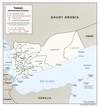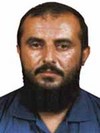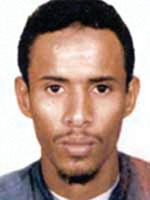Even as the US has stepped up cooperation with Yemen in targeting al Qaeda in the Arabian Peninsula, known terrorists wanted by the US government continue to operate in the open while the Yemeni government looks the other way.
The US has increased military and intelligence support to the weak Yemeni government and President Ali Abdullah Saleh over the past several months as al Qaeda in the Arabian Peninsula has grown more bold. The terror group has been plotting to target the Yemeni state as well as US and other foreign targets inside and outside Yemen, according to US intelligence officials.
In the fall, the US deployed special operations forces to Yemen to work with the country’s army and security serves to root out al Qaeda in the Arabian Peninsula. The terror group has opened large training camps in Sana’a, Abyan, and Shabwa provinces over the past year. Camps in these provinces were targeted in US airstrikes on Dec. 17, while a high-level leadership meeting was hit a week later in Shabwa on Dec. 24.
The Yemeni government has denied US involvement in the attacks against al Qaeda in the Arabian Peninsula, and claimed Yemen took action because the group was “trying to show that they can undertake terrorist activities in an open fashion.”
“There was intelligence that they were targeting the British Embassy and a number of government institutions as well as private schools,” Abu Bakr al Qirbi, Yemen’s foreign minister, told The New York Times. “The second reason is that they have become more vocal, trying to show that they can undertake terrorist activities in an open fashion. So the government had to respond to that.”
US officials have praised Yemen for its support against al Qaeda; after the Dec. 17 strikes, President Barack Obama phoned President Saleh to offer thanks. Pentagon spokesman Bryan Whitman also “commended” the Yemeni for confronting al Qaeda.
“The fact of the matter is that Yemeni officials and government ought to be commended for taking on the al Qaeda threat that exists in their country,” Whitman said on Dec. 28. “Yemen has a growing al Qaeda threat and the government has taken the important steps to address it.”
But for years Yemen has refused to keep wanted al Qaeda operatives behind bars or transfer them to the US for trial. Two wanted al Qaeda operatives, Jamal Ahmed Mohammed Ali al Badawi and Fahd Mohammed Ahmed al Quso, have operated openly in Yemen despite being wanted for their roles in the Oct. 12, 2000, bombing of the USS Cole in Aden, Yemen, that killed 17 US sailors.
Another wanted al Qaeda operative, Jaber A. Elbaneh, was a member of the Buffalo Six, an al Qaeda cell based in Lackawanna, New York.
The US government has a $5 million reward for information leading to the arrests of Badawi, Elbaneh, and Quso, yet the Yemeni government has rebuffed efforts by the US to have them extradited to the US.
Two radical clerics known to support al Qaeda have also operated freely in Yemen. Abdulmajid al Zindani manages a radical Islamic university despite being designated a terrorist by both the US and UN. Ansar al Awlaki, a radical cleric who provided spiritual support to two of the Sept. 11 hijackers as well as to a Muslim US Army major who murdered 13 US soldiers in a shooting spree, has delivered sermons via teleconference across the globe while running a jihadi website.
Both Awlaki and Quso have gone underground in Yemen since the US airstrike on Dec. 17.
Jamal Ahmed Mohammed Ali al Badawi
The FBI lists Badawi as one of its most wanted terrorists for his involvement in the bombing of the USS Cole. Badawi was being held by Yemeni authorities in connection with the attack when he escaped from prison in April of 2003. He was recaptured in March of 2004, but again escaped Yemeni custody on Feb. 3, 2006.
Badawi was one of 33 Yemeni al Qaeda operatives on trial for “forming an armed group with the aim of perpetrating criminal acts … by attacking foreign residents in Yemen, the clients of a hotel … and causing explosions targeting vital installations,” according to the Yemeni government. The plots included aborted strikes against an oil refinery in Marib and a fuel storage depot at the Dhabba terminal in September 2006.
Badawi was granted a conditional pardon by a Yemeni court after surrendering to the government in Oct. 2007. He has since been granted a release under the guise of being under house arrest.
|
|
|
Fahd Mohammed Ahmed al Quso. |
Fahd Mohammed Ahmed al Quso
Quso is also wanted by the FBI for his role in the bombing of the USS Cole. He also is known to have met Sept.11 hijackers Nawaf al Hazmi and Khalid al Mihdhar during a trip to Malaysia in 2000.
Quso was detained by Yemeni security forces after the Sept. 11 attacks, but escaped from prison in 2003. He was later recaptured in 2004. It is unclear if he again escaped from prison or was released by the Yemeni government.
Until recently, Quso is known to have operated in the open in Yemen, particularly in Yemen’s Shabwa province. The Yemeni government has not moved to detain him. Quso was one of the targets of the US airstrike in Shabwa province on Dec. 24, 2009.
Jaber A. Elbaneh,
Elbaneh is a member of the Buffalo Six, an al Qaeda cell that was based in Lackawanna, New York. Elbaneh has been chaged with “providing material support to a terrorist organization and conspiring to provide material support, specifically to Al Qaeda,” according to the FBI.
Elbaneh disappeared after taking a trip to Afghanistan in 2002, and later surfaced in Yemen, where he was arrested and convicted for his involvement in the bombing of the French-flagged oil tanker Limburg off the coast of Yemen in 2002.
He escaped from jail in February of 2003. A Yemeni court convicted Elbaneh for his involvement in a spate of attacks against oil facilities in the country. He turned himself in to authorities in 2008 in exchange for a deal that kept him out of prison.
Abdulmajid al Zindani
Abdulmajid al Zindani is a radical Islamist cleric with close ties to both al Qaeda and the Yemeni government. Zindani has been designated a terrorist financier by the UN’s 1267 Committee and labeled a Specially Designated Global Terrorist by the US Treasury for serving as a spiritual adviser to bin Laden and as an al Qaeda financier and recruiter.
Zindani is the founder and president of the Iman University in Sana’a. Iman University is a known breeding ground for Islamist terrorists.
“Yemen has refused to turn Al Zindani over to U.S. authorities, as many observers believe that President Salih is protecting him for political purposes,” according to a report by the Congressional Research Service.
Ansar al Awlaki
Anwar al Awlaki is a US-born cleric who has become a rising star in al Qaeda’s network in Yemen. Awlaki was one of the targets of a high-level meeting of leaders of al Qaeda in the Arabian Peninsula on Dec. 24. He is thought to provide religious guidance to the terror group, US intelligence officials told Long War Journal. He is said to have provided religious guidance to approve the Christmas Day airline bombing attempt that nearly brought down an airliner over Detroit.
Awlaki’s ties to radical Islamist terror groups stretch back for more than a decade. In 1998-99, Awlaki served as the Vice President for the Charitable Society for Social Welfare, a charity founded by Abdulmajid al Zindani, the man who serves as Osama bin Laden’s spiritual advisor and who is designated a terrorist by the US government. The Charitable Society for Social Welfare diverted donations to al Qaeda and other terror groups, according to the FBI.
Awlaki served as the spiritual advisor to Sept. 11 hijackers Nawaf al Hazmi and Khalid Almihdhar, while a third hijacker, Hani Hanjour, is known to have attended his sermons. Awlaki’s phone number was found at the home of Ramzi Binalshibh, one of the masterminds and key facilitators of the Sept. 11 attacks.
In late 2002, Awlaki fled the US and went to Britain, where he is known to have preached at the Masjid at Tawhid mosque in London. He encouraged Muslims to seek martyrdom.
In 2004, Awlaki and his family left London to live in Shabwa province in Yemen. Awlaki again went to work for Zindani, this time by giving lectures at Iman University.
Awlaki has become a prominent cyber-jihadist. Combining his ability to communicate in English with his charisma with young, radical Muslims and his presence on the Web, Awlaki has developed a large following. He gives numerous lectures and speeches via the Internet and teleconferences. US law enforcement agencies and intelligence services consider Awlaki to be a prime recruiter for al Qaeda as well as a provider of the needed religious justifications, or fatwas, for jihadis to carry out attacks.
Awlaki recently reemerged as a major jihadist figure in the West after it was found out he was in direct email communication with Major Nidal Hasan before the latter killed 13 US soldiers and civilians at a staging center for troops deploying overseas. While Awlaki denies radicalizing Hasan, his emails, which he provided to Al Jazeera, show that he provided the religious justification for Hasan to conduct the attacks.











4 Comments
was this one big jailbreak? how could that many people escape from prison? sounds like yemen is going to be as much of a mess as pak!
Is Ansar al Awlaki more than just a spiritual advisor? Fox News said today that he has gone operational and that he is starting to plan attacks for AQAP.
this is just another case of the two political machines failing to protect the american people. they need to open there eye and instead of there mouths
Yemen permits, or Yemenis don’t have much choice?
There’s a diff.